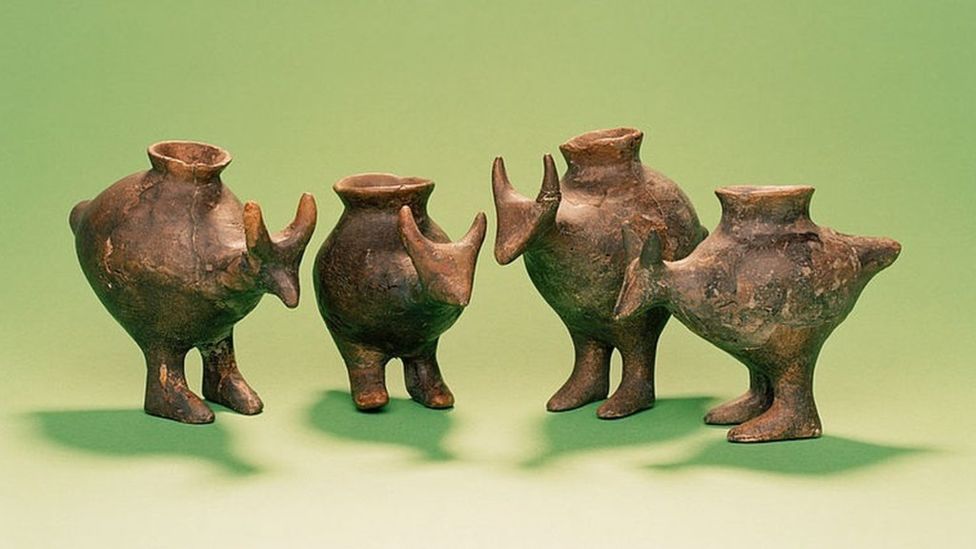
Prehistoric babies fed animal milk in bottles
2019-09-26 06:24:45
Prehistoric babies were bottle-fed with animal milk more than 3,000 years ago, according to new evidence.
Archaeologists found traces of animal fats inside ancient clay vessels, giving a rare insight into the diets of Bronze and Iron Age infants.
The discovery suggests milk was given to infants to supplement breast feeding and could have contributed to a baby boom.
The type of milk is unknown, but goats or cows are likely suspects.
This is the first direct evidence for how prehistoric infants were fed, said Dr Julie Dunne of the University of Bristol, adding that the practice could have boosted fertility.
"It's so nice to have that window on the past and think about how mothers and how families were dealing with bringing up children several thousand years ago," she told BBC News.
"The fact that we can feed human babies animal milk for the first time means essentially that prehistoric women can have more babies, which leads to a massive population increase, which sets us on the pathway to how we live today."
Some 7,000 years ago in Neolithic Europe, human lifestyles underwent a profound shift. The hunter gatherer lifestyle vanished as people grew crops and domesticated animals.
Humans began consuming dairy products about 6,000 years ago, but very little is known about the diet of ancient infants.
- Earliest evidence of milk consumption
Past evidence has suggested prehistoric infants were likely given some sort of baby food in addition to breast milk after six months, but their diet was unknown.
Archaeologists turned to ceramics for the answer, specifically spouted pottery vessels dating back to more than 5,000 years ago.
They tested the contents of three small "bottles" that had been buried alongside infants in graves from the Bronze Age and Iron Age (between 1,200 and 450 BC).
Molecular fingerprints revealed fats from animal products, including fresh milk.
Giving milk in this way would have had its risks as the hard-to-clean bottles could have exposed babies to infection.
But switching away from breast feeding may have had a fertility effect, contributing to the population explosion around this time.
Commenting on the study, published in the journal, Nature, Sian Halcrow of the University of Otago, New Zealand, said further work was needed to explore the effects of introducing animal milk as an infant food.
"Such knowledge, together with evidence of disease for the individual being studied, might help to provide a greater understanding of the significance of animal milk for the lives of ancient children."
Comments